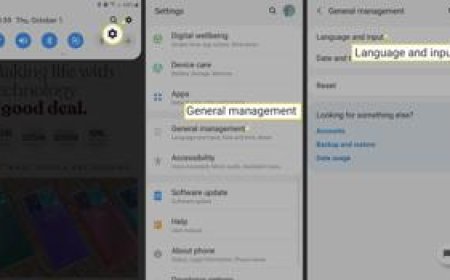Managed IT Plans for Brokerage Firms: Balancing Support & Security
Explore how managed IT plans help brokerage firms balance support and security. Ideal for firms seeking Financial Services IT Support.

In todays fast-paced digital world, brokerage firms operate in a highly competitive, data-driven environment where every millisecond can influence trades and transactions. From executing real-time trades to managing sensitive client portfolios, the industry demands robust IT infrastructure that offers seamless performance, bulletproof security, and round-the-clock support.
The key to meeting these demands lies in adopting well-structured managed IT plans tailored specifically to the brokerage sector. These plans offer a balance between ongoing support and high-grade security, ensuring financial operations remain compliant, resilient, and efficient.
The Need for Managed IT in Brokerage Firms
Brokerage firms handle large volumes of financial data, customer information, and market feeds across multiple platforms and geographies. This setup introduces significant operational complexities that can hinder performance if not adequately supported by reliable IT systems.
Brokerage houses are bound by regulatory frameworks such as MiFID II, GDPR, and FCA compliance guidelines. Failing to maintain IT infrastructure that meets these compliance standards can result in fines, reputational damage, and operational setbacks.
Some of the critical IT challenges in brokerage operations include:
- Ensuring minimal downtime for platforms during trading hours across different time zones
- Handling cyber threats that target confidential financial data
- Scaling IT infrastructure to meet growing client demands and data volumes
- Keeping pace with ever-changing compliance regulations
This is where managed IT support tailored to brokerage needs can become a game changer.

Core Components of Managed IT Plans for Brokerages
A reliable managed IT plan for a brokerage firm must include several essential components that provide both daily operational support and long-term stability. These components are designed to ensure smooth trading operations while mitigating risk and downtime.
1. Continuous Monitoring and 24/7 Helpdesk Support
Brokerage firms operate in a global marketplace that never sleeps. As such, IT systems must be monitored continuously to prevent failures before they happen. Round-the-clock helpdesk support ensures that any user-side or system-related issue is resolved quickly, avoiding extended disruptions to trading activities.
- Real-time alerts for system anomalies and network threats
- Quick resolution of hardware, software, or access issues
- Remote diagnostics and patch deployment to minimise delays
This constant oversight is critical for firms investing inFinancial Services IT Support, where every second of platform downtime could result in significant losses.
2. Infrastructure Management and Scalability
Brokerages often use a mix of on-premises servers, cloud platforms, and hosted trading environments. A strong managed IT plan includes:
- Infrastructure assessment and optimisation strategies
- Migration planning for cloud or hybrid environments
- Scalable resources to handle trading spikes and user growth
These services ensure your infrastructure grows alongside your business needs without unnecessary expenditure.
3. Cybersecurity Protection at Every Layer
Cybercriminals exploit vulnerabilities in endpoints, networks, and even human behaviour to access sensitive data.
An effective managed IT service must offer multi-layered cybersecurity including:
- Next-generation firewalls and intrusion prevention systems
- Endpoint protection, antivirus, and malware monitoring
- Secure VPNs and multi-factor authentication for remote staff
- Data encryption and access control policies
When it comes to IT Support in Hertfordshire, brokerage firms require robust, proactive defences that are constantly updated to handle evolving threats.
4. Data Backup and Disaster Recovery
Downtime caused by server crashes, ransomware attacks, or natural disasters can have devastating financial consequences. Managed IT services offer:
- Scheduled backups to offsite or cloud storage
- Rapid recovery of client data and platform configurations
- Testing and validation of disaster recovery plans
The aim is to get systems back up and running within defined recovery time objectives, reducing business impact and maintaining trust with clients.
Benefits of Outsourcing Managed IT Services for Brokerages
Many brokerage firms, especially small to mid-sized operations, find that outsourcing IT support to managed service providers offers better ROI than maintaining in-house teams. Below are the main benefits:
- Reduced costs: No need to maintain full-time in-house staff or invest in enterprise-grade infrastructure from the start
- Predictable expenses: Fixed monthly fees help avoid surprise costs related to system failures or emergency maintenance
- Access to expertise: Tap into specialised knowledge in Financial Services IT Support and stay updated with the latest technology trends
- Faster issue resolution: Dedicated teams resolve issues quickly, avoiding costly downtime
- Business continuity: A focus on data recovery, backup, and high availability ensures business operations arent interrupted
- Enhanced security posture: Proactive threat monitoring and remediation prevent attacks before they cause damage
Selecting the Right Managed IT Provider for Your Brokerage
Brokerage firms should consider several factors to ensure they select a provider who understands the complexities of the financial world.
Heres what to look for:
- Experience with financial services: Not all IT companies understand the speed, compliance, and data sensitivity required in brokerage operations
- Customisation of services: One-size-fits-all packages do not work for brokerages; look for providers offering flexible plans tailored to your infrastructure
- Compliance knowledge: Providers must have proven experience with regulatory frameworks affecting financial firms
- Local support availability: If your firm is based in the UK, seekingIT Support in Hertfordshireoffers location-based responsiveness
- Service-level agreements (SLAs): These define guaranteed response times, uptime commitments, and support structures
- References and reviews: Client testimonials and case studies can provide insights into how the provider has supported similar financial firms
Common Mistakes to Avoid When Implementing Managed IT Plans
Despite the clear benefits, many firms fall into avoidable traps during the implementation of managed IT services.
- Choosing the cheapest provider without assessing quality or compliance readiness
- Overlooking cybersecurity during budget planning
- Not reviewing the SLA thoroughly
- Failing to train internal teams on new tools or procedures
A strategic partnership with the right managed IT provider helps avoid these pitfalls while futureproofing your IT ecosystem.

Future-Proofing Brokerage Operations with IT Strategy
As trading technology evolves, so do client expectations and industry standards. Managed IT plans are not staticthey must evolve with changing needs. Your provider should help you develop an IT roadmap aligned with your business growth, new regulations, and technology upgrades.
Look for providers that offer strategic IT consultancy, quarterly reviews, and roadmaps designed to optimise performance while staying ahead of regulatory and cybersecurity trends.
Conclusion
Brokerage firms cannot afford to compromise on either support or security when it comes to IT. The risksfrom financial loss to reputational damageare too high. A comprehensive managed IT plan bridges this gap by offering reliable support structures and multi-layered security protocols tailored to the needs of modern trading environments. Renaissance Computer Services Limited delivers managed IT services tailored specifically for the unique needs of banks and financial agencies. With a strong understanding of compliance, security, and performance, our team ensures your firm operates smoothly and securely while you concentrate on delivering value to your clients.








































